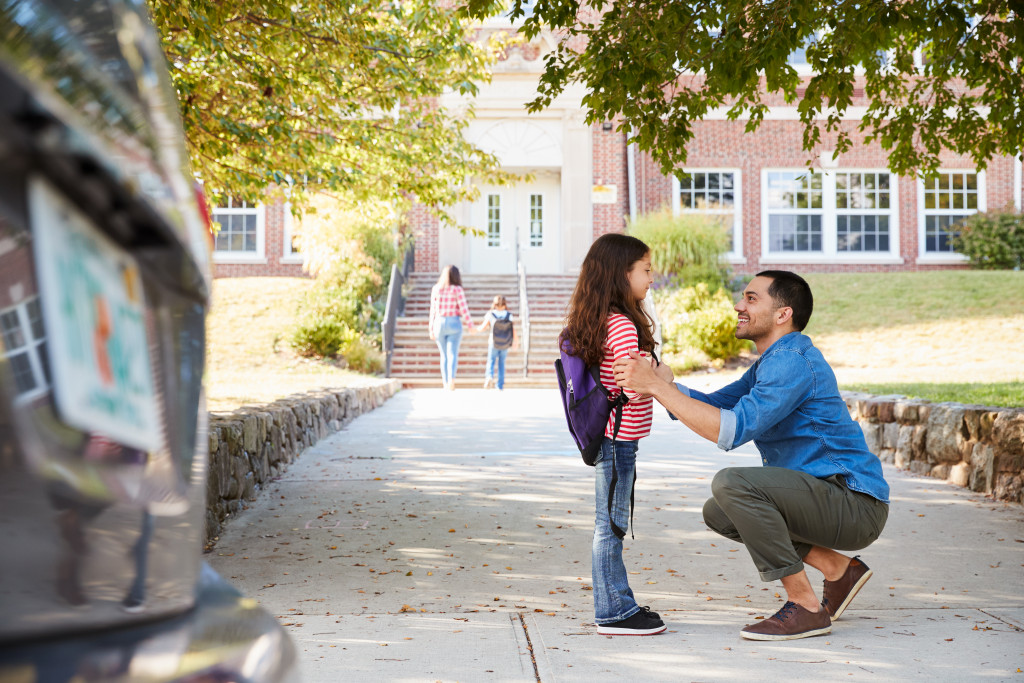- Choosing the right school for your child is a crucial decision shaping their educational experience and social interactions.
- When choosing a school, consider curriculum, school environment, location/transportation, and cultural fit.
- Take time to research schools and visit different campuses to get a feel for the environment.
- Talk to your child about their preferences and needs to ensure you make the best decision.
- A good reputation can indicate that a school will provide an excellent educational experience for your child.
Choosing the right school for your grade-schooler is a crucial decision. Your chosen school will shape your child’s educational experience, social interactions, and overall development. With so many options available, deciding which school is the right fit for your child can be overwhelming. But don’t worry! This blog post will explore some key considerations when choosing a school for your grade-schooler.
The Importance of Choosing the Right School
As a parent, choosing the perfect school for your grade school student is one of your most important decisions. It’s not just about finding a school with a good reputation but one that will provide your child with the best possible education and experience.
A great school should challenge your child academically while teaching them essential life skills and encouraging their interests and passions. A supportive and safe learning environment can significantly impact your child’s well-being and success. By taking the time to research and visit different schools, you can ensure that you’re making an informed decision that will benefit your child for years to come.
Tips for Choosing a School for Grade-Schoolers
When choosing a school for your grade-schooler, several key factors must be considered. Explore some of them below:
School Curriculum

One of the most important considerations when choosing a school for your grade schooler is the curriculum. Different schools follow different teaching approaches and learning styles, so choosing a school that aligns with your child’s learning style and personality is important.
For instance, if your child is more hands-on and experiential, a school with a project-based learning approach might be a good fit. Similarly, if your child needs extra academic support, a school that offers additional resources, like tutoring or different help sessions, might be a better choice.
School Environment
The school environment is crucial in shaping your child’s social and emotional development. When choosing a school, visit the campus and observe the environment. Does the school foster a welcoming and inclusive culture? Are the teachers friendly and approachable? What is the student-to-teacher ratio? Are there opportunities for extracurricular activities and social events? Asking these questions will help you evaluate whether the school is a good fit for your child.
Location and Transportation
The location and transportation of the school are also important considerations. A school that’s too far away or difficult to reach can cause unnecessary stress for you and your child.
But if your budget does not allow for a convenient location, there are other options. For instance, opting for a local community charter school can be a great way to save money without sacrificing quality. These schools typically offer excellent education and are often closer to home, saving you time and money.
Cultural Fit
When choosing a school for your grade-schooler, it’s essential to consider the school’s cultural fit. Culture refers to the norms, values, beliefs, and customs that shape the school’s identity.
Schools have distinct cultures, and it’s essential to choose a school whose culture aligns with your family’s values and beliefs. For instance, a school that embraces cultural diversity might be a good fit if you value diversity and inclusion.
School Reputation
It’s essential to consider the school’s reputation before making a decision. Do your research online and talk to other parents and teachers. Consider factors like academic performance, graduation rates, and college placement. A school with a good reputation is more likely to provide an excellent educational experience for your child.
Making the Right Decision

Now that you know some of the key considerations, it’s time to decide. Evaluate each school carefully and make sure to ask questions. Talk to your child about their preferences and needs, and listen to their input. You know what’s best for your child.
At the end of the day, choosing the right school is a big decision, but it doesn’t have to be stressful. With proper research and understanding of your child’s needs, you can make an informed decision that will benefit your child for years to come.
Final Thoughts
Choosing the right school for your grade-schooler is an important decision that requires careful consideration. By evaluating the curriculum, school environment, location, cultural fit, and school reputation, you can make an informed decision that aligns with your child’s needs and supports their overall development. Remember, the school you choose will significantly shape your child’s future, so take your time, research, and make the best decision for your family.

